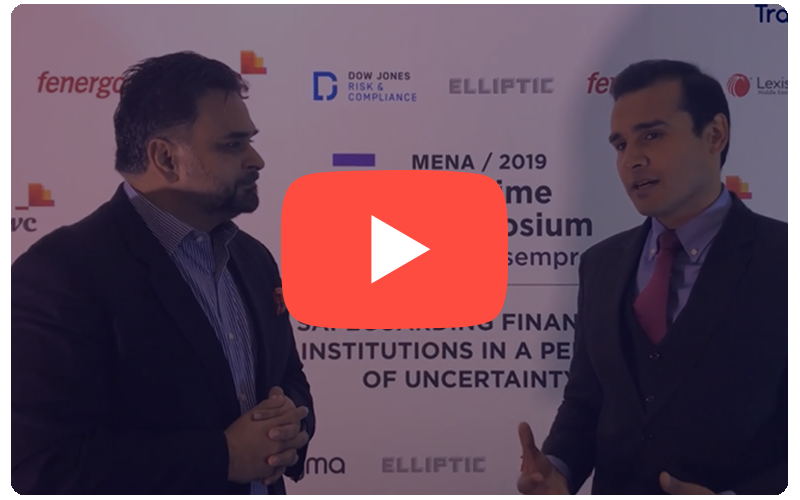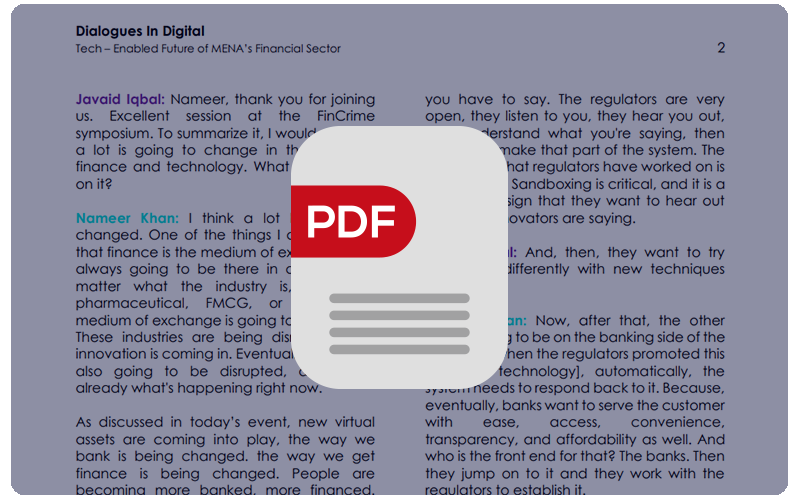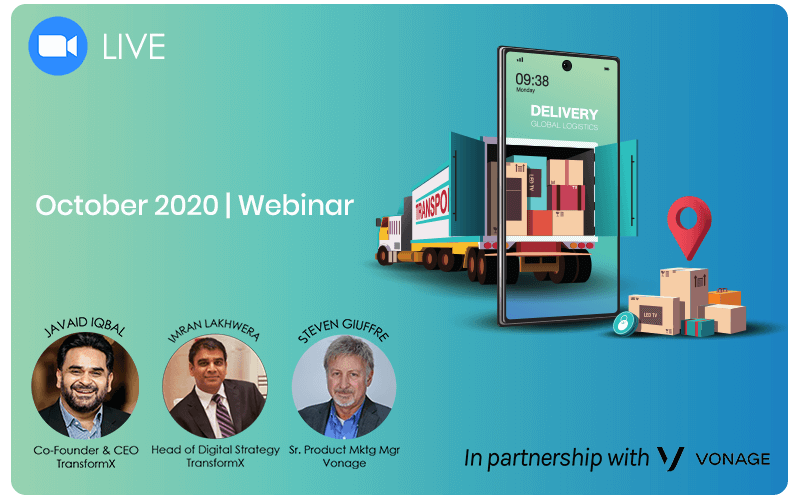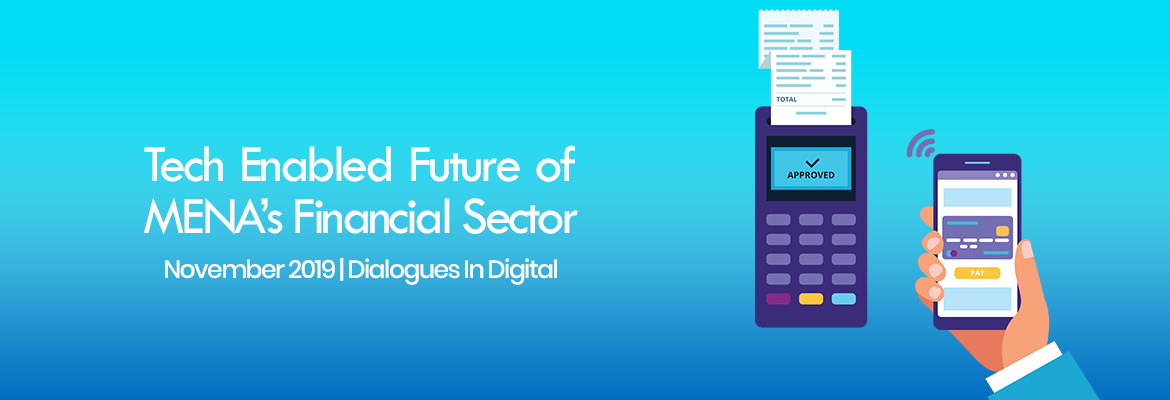
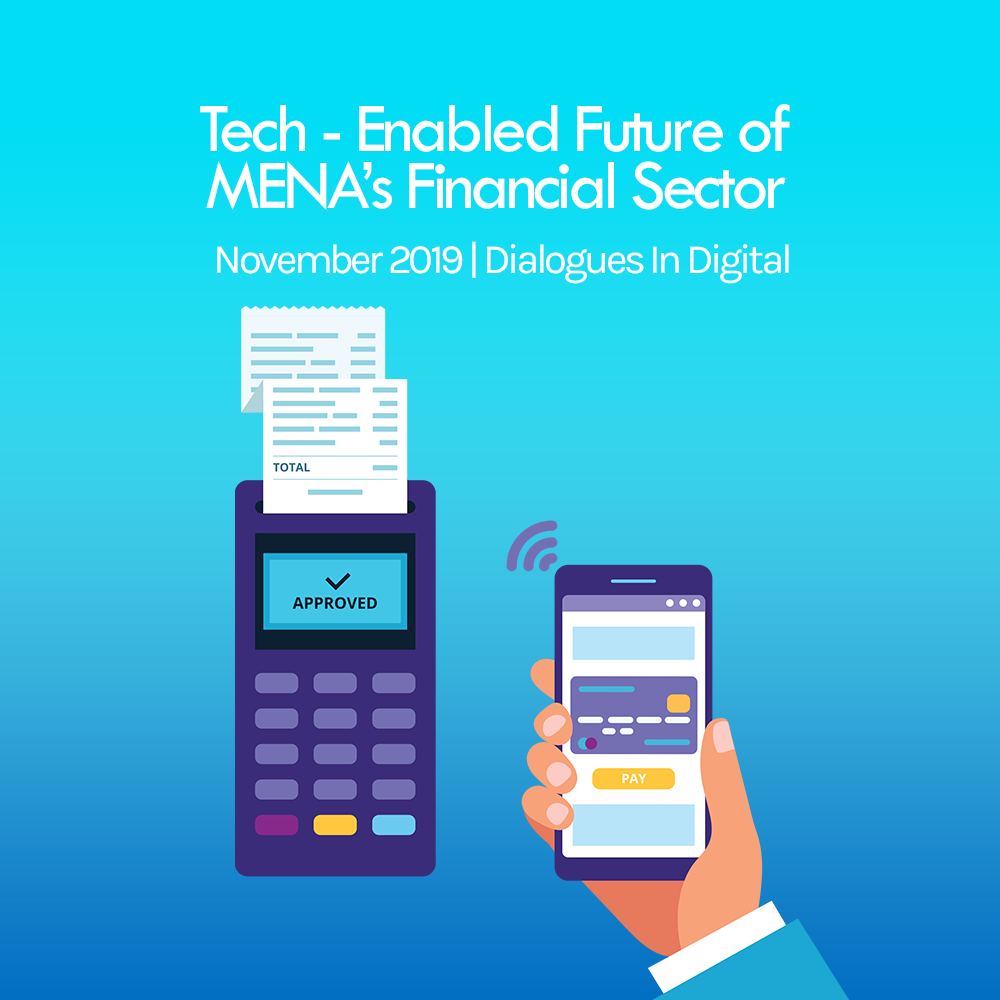
The future of financial technology in the Middle East will be dictated by regional regulators. Financial technology in emerging parts of the world has taken a major upswing in recent times. Driving this transformation are the fast-changing banks and the ever-powerful consumer, however, the key catalyst are the ever-improving regulators who, going against the common norm, are pushing the entire segment of change. The interplay between these three changing agents will ensure that the field of Fintech continues to flourish in these emerging markets.
The future of financial technology in the Middle East will be dictated by regional regulators. Financial technology in emerging parts of the world has taken a major upswing in recent times. Driving this transformation are the fast-changing banks and the ever-powerful consumer, however, the key catalyst are the ever-improving regulators who, going against the common norm, are pushing the entire segment of change. The interplay between these three changing agents will ensure that the field of Fintech continues to flourish in these emerging markets.
The future of financial technology in the Middle East will be dictated by regional regulators. Financial technology in emerging parts of the world has taken a major upswing in recent times. Driving this transformation are the fast-changing banks and the ever-powerful consumer, however, the key catalyst are the ever-improving regulators who, going against the common norm, are pushing the entire segment of change. The interplay between these three changing agents will ensure that the field of Fintech continues to flourish in these emerging markets.
Dialogues In Digital Transcript
Javaid Iqbal: Nameer, thank you for joining us. Excellent session at the FinCrime symposium. To summarize it, I would say that a lot is going to change in the world of finance and technology. What is your view on it?
Nameer Khan: I think a lot has already changed. One of the things I always say is that finance is the medium of exchange. It is always going to be there in all forms. No matter what the industry is, be it be pharmaceutical, FMCG, or retail, the medium of exchange is going to be finance. These industries are being disrupted, and innovation is coming in. Eventually, finance is also going to be disrupted, and that’s already what’s happening right now.
As discussed in today’s event, new virtual assets are coming into play, the way we bank is being changed. the way we get finance is being changed. People are becoming more banked, more financed. People can borrow money more easily. So that element of ease, access, convenience, transparency and affordability is coming into play. Once these factors come into play, that forms the basic foundations of finance itself.
Javaid Iqbal: Interesting. So, you personally sit at a very interesting vantage point. You are the founder of the Middle East North Africa FinTech Association. You are at the trifecta of regulators, banks and consumers. Let’s take that one at a time: what advice would you want to give regulators, what are they doing good, and what can they improve upon?
Nameer Khan: Number one, the regulators are the ones that have really driven the financial technology landscape, as the birth of financial technology landscape literally came when the regulators pushed for. In this region, the dynamics are a little different from what you would usually find in the Far East or in the West. Over here, the regulators took the first move and created that environment, so, in that scenario, I would say the regulators are forward-looking. Not many regions have regulators that listen to what you have to say. The regulators are very open, they listen to you, they hear you out, they understand what you’re saying, then they try to make that part of the system. The other thing that regulators have worked on is sandboxing. Sandboxing is critical, and it is a very strong sign that they want to hear out what the innovators are saying.
Javaid Iqbal: And, then, they want to try things out differently with new techniques and tips.
Nameer Khan: Now, after that, the other thing is going to be on the banking side of the fence. So, when the regulators promoted this [financial technology], automatically, the system needs to respond back to it. Because, eventually, banks want to serve the customer with ease, access, convenience, transparency, and affordability as well. And who is the front end for that? The banks. Then they jump on to it and they work with the regulators to establish it.
For the consumers, they are at a win-win situation completely, where everyone is trying to win the customers. To win the customers, once again, the core fundamentals that we’ve discussed earlier come into play: by providing the ease, access, convenience, transparency and affordability. Now, apart from that, the other thing that I would like to highlight, when it comes to the regulators and the way they are currently working right now, is one regulator has taken lead, especially this country [the UAE], and other regional regulators are responding to it.
The twenty-two Arab countries in our association have started responding to it by coming with regimes that support the financial technology landscape. So, I think the regulators, what they are further doing right now is they have tried to create a bridge via us, via this association, in creating a bridge between the innovators, the regulators, the corporates, the academia into one place. It’s an evolving space and something that is being involved, it needs more insights and more inputs. Traditionally, regulations were being made by the corporates, the inputs large corporates were giving, were more favorable to their side of the house, rather than the collective good. The regulators had their own understanding, and they were getting the understanding from the corporates as well. But things have changed now. The innovators who are building these new futuristic solutions, come into play and now have a say, too. The other thing that I feel they are looking forward to is bringing the international markets into the region.
Javaid Iqbal: Interesting. As we consult many of the banks in this region, one of the things that we see as a challenge is that the board members don’t have a vision of technology. The C-suite has, on the business side, at least, seen or attended enough conferences to have the right idea of the future, but their IT is not ready. What will make the banks ready internally, apart from just the vision, to start taking this in their stride, moving forward?
Nameer Khan: The first thing that I typically do with the banks in the region, is keep it very simple: remove the legacy mindset. So, legacy mindset is the most basic issue that you have. Once the legacy mindset is removed. Then, that removes the first and most critical barrier of actually understanding what financial technology is going to do for you. Second is the understanding of financial technology: What is financial technology, what animal it is? That needs to be understood by all the employees who are part of your organization. Eventually, even if you have the vision and the tech, you still have to implement it. The employees are the ones who implement it. If they do not understand what you are implementing, why you’re implementing, and what are you trying to achieve, it is never going to work. So, first of all, the mindset needs to be fixed.
Javaid Iqbal: Then after that comes investing in your people and getting their digital quotients up?
Nameer Khan: Absolutely. It is going to be an uphill task, regardless, but the critical component is the mindset shift that you need to bring into your employees, otherwise, it is going to be difficult. That is because, right now, there are so many meanings of FinTech – every expert has their own meaning. I think the first critical thing is to embed the right mindset into their minds, after that lead towards the next bit of implementation. Then, it’s only going to become easier for you, rather than creating impediments. There are so many banks that have launched digital platforms. It’s not front-end only there is a lot of back-end work that needs to be done. So, they’ve gone digital, but they have never been able to scale, because who scales it? The employees.
Javaid Iqbal: Well to scale it you must understand what’s the scale. How to build? You know, all that, which is very interesting. Lastly, the consumer. They’ve got this new power that they never had. And everybody’s fighting for them to get their attention. How far are they from adopting all the change that is being thrown at them. What do they need to do to get ready for the digital world?
Nameer Khan: They don’t need to be ready because they already have. They will be served on their plates, you know. The customer is the king, as the old saying goes. It’s always been there, and I think the customer is now going to be the king of kings. I personally get so many freebies from every platform, and I like that, and I’ve been spoiled more and more. I think the customer is more than ready than ever before and they have all that it takes. The only thing they need to do is to adopt new technologies, and I think the hardware companies would fight to make sure that they are ready for it.
Javaid Iqbal: Looks like there’s more pampering coming your way. Thank you so much for talking to us, Nameer.
About the speaker(s)
Nameer Khan is the Founding Board Member of the MENA FinTech Association and a strategic advisor to multiple fintech’s and central banks in the Middle East region. Nameer has extensive experience in building organizations through his work at PwC and other global outfits and specializes in the areas of information technology, media and logistics.
LinkedIn: www.linkedin.com/in/nameerkhan/
Javaid Iqbal is the Co-Founder & CEO of TransformX. He has previously served as a Customer Success & Engagement Leader at Salesforce and held various leadership positions at multiple consultancies including EY and PwC where he spearheaded large-scale complex business transformation efforts for global Fortune 100 clients and Federal & State and Local governments across North America, Europe & Asia.
LinkedIn: www.linkedin.com/in/jiqbal/
About Dialogues In Digital
The rampant pace of technology and its impact on the environment often makes it near-impossible to take a breath and realize the countless upheavals affecting organizations, industries, and societies in real-time. Events and breakthroughs with widespread repercussions can go unaccounted for and their potential lost forever. TransformX’s Dialogues In Digital Series is one attempt to assemble business leaders from a wide cross-section of industries and geographies to share their insights on such disruptive developments and highlight the role that key stakeholders in the leadership ranks can play in their sphere to become a crucial cog of their industries and ecosystems. Catch these conversations on our YouTube channel and follow us on our social feeds for the latest and greatest in the world of digital innovation.
Dialogues In Digital Transcript
Javaid Iqbal: Nameer, thank you for joining us. Excellent session at the FinCrime symposium. To summarize it, I would say that a lot is going to change in the world of finance and technology. What is your view on it?
Nameer Khan: I think a lot has already changed. One of the things I always say is that finance is the medium of exchange. It is always going to be there in all forms. No matter what the industry is, be it be pharmaceutical, FMCG, or retail, the medium of exchange is going to be finance. These industries are being disrupted, and innovation is coming in. Eventually, finance is also going to be disrupted, and that’s already what’s happening right now.
As discussed in today’s event, new virtual assets are coming into play, the way we bank is being changed. the way we get finance is being changed. People are becoming more banked, more financed. People can borrow money more easily. So that element of ease, access, convenience, transparency and affordability is coming into play. Once these factors come into play, that forms the basic foundations of finance itself.
Javaid Iqbal: Interesting. So, you personally sit at a very interesting vantage point. You are the founder of the Middle East North Africa FinTech Association. You are at the trifecta of regulators, banks and consumers. Let’s take that one at a time: what advice would you want to give regulators, what are they doing good, and what can they improve upon?
Nameer Khan: Number one, the regulators are the ones that have really driven the financial technology landscape, as the birth of financial technology landscape literally came when the regulators pushed for. In this region, the dynamics are a little different from what you would usually find in the Far East or in the West. Over here, the regulators took the first move and created that environment, so, in that scenario, I would say the regulators are forward-looking. Not many regions have regulators that listen to what you have to say. The regulators are very open, they listen to you, they hear you out, they understand what you’re saying, then they try to make that part of the system. The other thing that regulators have worked on is sandboxing. Sandboxing is critical, and it is a very strong sign that they want to hear out what the innovators are saying.
Javaid Iqbal: And, then, they want to try things out differently with new techniques and tips.
Nameer Khan: Now, after that, the other thing is going to be on the banking side of the fence. So, when the regulators promoted this [financial technology], automatically, the system needs to respond back to it. Because, eventually, banks want to serve the customer with ease, access, convenience, transparency, and affordability as well. And who is the front end for that? The banks. Then they jump on to it and they work with the regulators to establish it.
For the consumers, they are at a win-win situation completely, where everyone is trying to win the customers. To win the customers, once again, the core fundamentals that we’ve discussed earlier come into play: by providing the ease, access, convenience, transparency and affordability. Now, apart from that, the other thing that I would like to highlight, when it comes to the regulators and the way they are currently working right now, is one regulator has taken lead, especially this country [the UAE], and other regional regulators are responding to it.
The twenty-two Arab countries in our association have started responding to it by coming with regimes that support the financial technology landscape. So, I think the regulators, what they are further doing right now is they have tried to create a bridge via us, via this association, in creating a bridge between the innovators, the regulators, the corporates, the academia into one place. It’s an evolving space and something that is being involved, it needs more insights and more inputs. Traditionally, regulations were being made by the corporates, the inputs large corporates were giving, were more favorable to their side of the house, rather than the collective good. The regulators had their own understanding, and they were getting the understanding from the corporates as well. But things have changed now. The innovators who are building these new futuristic solutions, come into play and now have a say, too. The other thing that I feel they are looking forward to is bringing the international markets into the region.
Javaid Iqbal: Interesting. As we consult many of the banks in this region, one of the things that we see as a challenge is that the board members don’t have a vision of technology. The C-suite has, on the business side, at least, seen or attended enough conferences to have the right idea of the future, but their IT is not ready. What will make the banks ready internally, apart from just the vision, to start taking this in their stride, moving forward?
Nameer Khan: The first thing that I typically do with the banks in the region, is keep it very simple: remove the legacy mindset. So, legacy mindset is the most basic issue that you have. Once the legacy mindset is removed. Then, that removes the first and most critical barrier of actually understanding what financial technology is going to do for you. Second is the understanding of financial technology: What is financial technology, what animal it is? That needs to be understood by all the employees who are part of your organization. Eventually, even if you have the vision and the tech, you still have to implement it. The employees are the ones who implement it. If they do not understand what you are implementing, why you’re implementing, and what are you trying to achieve, it is never going to work. So, first of all, the mindset needs to be fixed.
Javaid Iqbal: Then after that comes investing in your people and getting their digital quotients up?
Nameer Khan: Absolutely. It is going to be an uphill task, regardless, but the critical component is the mindset shift that you need to bring into your employees, otherwise, it is going to be difficult. That is because, right now, there are so many meanings of FinTech – every expert has their own meaning. I think the first critical thing is to embed the right mindset into their minds, after that lead towards the next bit of implementation. Then, it’s only going to become easier for you, rather than creating impediments. There are so many banks that have launched digital platforms. It’s not front-end only there is a lot of back-end work that needs to be done. So, they’ve gone digital, but they have never been able to scale, because who scales it? The employees.
Javaid Iqbal: Well to scale it you must understand what’s the scale. How to build? You know, all that, which is very interesting. Lastly, the consumer. They’ve got this new power that they never had. And everybody’s fighting for them to get their attention. How far are they from adopting all the change that is being thrown at them. What do they need to do to get ready for the digital world?
Nameer Khan: They don’t need to be ready because they already have. They will be served on their plates, you know. The customer is the king, as the old saying goes. It’s always been there, and I think the customer is now going to be the king of kings. I personally get so many freebies from every platform, and I like that, and I’ve been spoiled more and more. I think the customer is more than ready than ever before and they have all that it takes. The only thing they need to do is to adopt new technologies, and I think the hardware companies would fight to make sure that they are ready for it.
Javaid Iqbal: Looks like there’s more pampering coming your way. Thank you so much for talking to us, Nameer.
About the speaker(s)
Nameer Khan is the Founding Board Member of the MENA FinTech Association and a strategic advisor to multiple fintech’s and central banks in the Middle East region. Nameer has extensive experience in building organizations through his work at PwC and other global outfits and specializes in the areas of information technology, media and logistics.
LinkedIn: www.linkedin.com/in/nameerkhan/
Javaid Iqbal is the Co-Founder & CEO of TransformX. He has previously served as a Customer Success & Engagement Leader at Salesforce and held various leadership positions at multiple consultancies including EY and PwC where he spearheaded large-scale complex business transformation efforts for global Fortune 100 clients and Federal & State and Local governments across North America, Europe & Asia.
LinkedIn: www.linkedin.com/in/jiqbal/
About Dialogues In Digital
The rampant pace of technology and its impact on the environment often makes it near-impossible to take a breath and realize the countless upheavals affecting organizations, industries, and societies in real-time. Events and breakthroughs with widespread repercussions can go unaccounted for and their potential lost forever. TransformX’s Dialogues In Digital Series is one attempt to assemble business leaders from a wide cross-section of industries and geographies to share their insights on such disruptive developments and highlight the role that key stakeholders in the leadership ranks can play in their sphere to become a crucial cog of their industries and ecosystems. Catch these conversations on our YouTube channel and follow us on our social feeds for the latest and greatest in the world of digital innovation.
